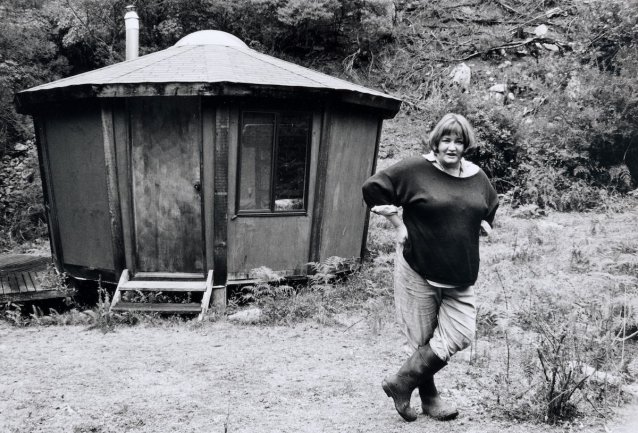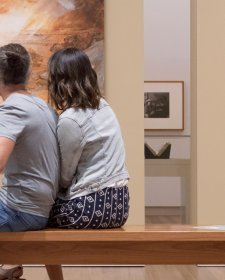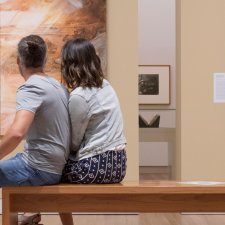- I'm not a good gardener, but I'm a very good garden writer, I think because I'm not a good gardener, because you're actually really writing about, "Okay, this is what you're supposed to do. This is what I did. Sometimes it succeeds, sometimes it fails." I never thought of myself as a gardener. I was fascinated by the ecology of plants, of pest control. My first paper was on, it was the book, "Natural Control of Garden Pests," "Organic Control of Common Weeds." So I did a lot research for books which became textbooks back in the late 80s and 90s. I don't do that now because now people with far better qualifications and understanding are doing it within academia and so it's an area I've pretty much left behind. But back then, what I was writing was fairly revolutionary. A reporter from the "Women's Weekly" came down to interview me about the gardening books. And quite coincidentally, their gardening writer, Valerie Swane, had breast cancer and actually resigned the day after the reporter had been here and they asked me to fill in. So I became the "Women's Weekly" gardening columnist. I've always loved reading. I wanted to be a writer very early. I wrote my first book at six when I was very bored one Sunday afternoon and had run out of books to read and so I decided to write one and the head mistress had a copy printed off for all the kids in the infant school after she'd corrected my spelling and got it typed out. I decided at seven years old, yes, I am going to write books, and I could have the fruit trees and the vegetables and the house and the animals. Back then it was a hundred dogs. It sort of got converted to wombats later on. It was completely accidental. I lived in a tent over on the other side for a while and then a shed over there and I'd have breakfast every morning up on the hill just above. And it was a time when a fairly old wombat was eating and he got curious about this strange animal who had moved into his territory. I never touched him. I never patted him. I never fed him. It was completely a friendship with a wild animal. "Diary of a Wombat" is based, and "Diary of a Rescued Wombat" actually tells the story of how the wombat knew that humans had carrots because Mothball was raised from a rescued wombat. A friend who was a freelance journalist who I'd admitted I wrote in secret encouraged me to send some writing away. And I think in those three weeks, I actually became a professional writer. Instead of just writing for fun, assuming no one would ever read anything I wrote, I actually wrote for an audience for the first time. So I wrote "Rain Stones." I was using an old typewriter from the dump. The wombat left his droppings on it. The E was all soft and scuffy. So I wrote it without using the letter E and filled in the E with biro. And so it was picked out of the pile because of the appalling spelling, the yellow paper, and wombat dropping sponges and letter Es written in biro and they just assumed that anyone who'd sent that in must be stupid. So the editor took it out to read a bit aloud to everyone so they could laugh at the world's worst manuscript. And there in the office, she just read the whole thing aloud to everyone all that afternoon, went back into her office, rang me up, and offered me an advance to publish it. But at the same time, I'd sent two articles to farming magazines and a story about living with lyrebirds to the "Canberra Times." So by the end of three weeks, I had three regular columns and the advance on "Rain Stones," which was more money than I'd ever seen in my life before. And it was regular. I mean, it was regular columns. So within three weeks, I was making a living as a writer. We met sort of accidentally. It was at The Pot Belly in Canberra and I met Brian at a table full and I thought he was one of the most boring people I had ever met. He'd just come back from the Netherlands and he talked about climbing the tallest mountain in the Netherlands. Now, what I didn't realise is that Brian has a very dry sense of humour and it was a joke, but I was thinking, oh, this man thinks that's what mountain climbing, I mean, dry man. But I was having an open house for Christmas and he was at the table and I couldn't very well invite everyone except you. So he came down on Boxing Day. Look, it was love at second sight. And I just realised in that moment this was a man who actually could be part of this place in a way that I'm, I mean, this is part of me. And as he walked up the stairs, he was part of it too. The '60s and the early '70s were a time where, basically, Western society was hopeful. What we hoped for was very, very varied, but just about everyone assumed that the future was going to be, was not just going to be good, but much, much better than the present. And the saddest thing with young people is seeing the erosion of that hope. One of the things I try to communicate to them is that humans have always faced challenges. We're descended from the survivors. We're descended from people who've survived wars, volcanic eruptions, volcanoes, plagues. Far greater climate change than even our grandchildren will ever see. We are descended from those who survived. And the worst thing is to actually be bored. And the one thing I can promise kids, no, I can't promise them a perfect world, but I can promise that they are challenges and they are challenges that we have already got solutions for. If they've got the courage of their ancestors, the one thing I can promise is if they work together, they will never, ever, ever be bored. Look, remember, though, that I am a storyteller and things seem more dramatic because, professionally, I do cut out the boring bits and I just leave the entertaining bits in there. So yes, everything I've said has been the truth and nothing but the truth, but probably nothing I've said has been the whole truth.














